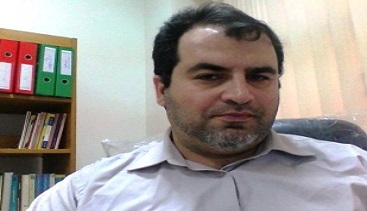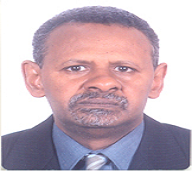Scientific Program
Keynote Session:
Title: Plant secondary metabolites: A good source of herbal antibiotics
Biography:
Dr Priti Mathur is working in Amity Institute of Biotechnology, Amity University Uttar Pradesh, and Lucknow as Senior faculty. Dr Priti Mathur has proved first time in world that antibiotics like compounds can be isolated from plant source. This is evident by her recent research papers published in national and international journal and patent “herbal antibiotic formulation” submitted to patent office, Government of India. Dr Priti Mathur is working on “Isolation and characterization of antibacterial compounds from wildly growing plants” with her students with collaboration with Ram Manohar Lohia Institute of Medical Sciences and Central drug research institute, Lucknow. Dr Mathur completed her Post graduation Patna University, Bihar India. Dr Priti Mathur has done PhD from CSIR organisation- Centre Institute of Medicinal and Aromatic Plants and Post doctorate from ICAR organization -Indian Institute of Sugarcane research. She has filed two patents and published many research papers in reputed national/ international journal and presented her work in various national/international conferences. She has been awarded by fellowships and award for her research work.
Abstract:
Our planet is full of natural resources. Nature has given us plants and its product to live the life comfortable and healthy. It has been predicted that there are 30,0000 to 50,0000 different plant species in the world with biologically & chemically diverse groups. According to one report approximately 20,0000 secondary metabolites are present as specialized compounds. The existence of this biologically active substance within the plant tissue is responsible for its therapeutic value & includes alkaloids, glycosides, flavonoids, tannins, resins, essential oils, gums, etc. These phytochemicals provide a frequent motivation of therapeutic agent with reduced toxicity, broad spectrum of activity & good pharmacokinetics to be used clinically deprived of any chemical alteration. There is urgent need of effective antibiotics to overcome global problem of antibiotic resistance in clinically relevant bacterial populations. Plants are excellent source of antibacterial compounds. We have we have isolated and characterize,a plant steroid Dinoxin B withanolide as a potential antibacterial compound from Datura inoxia against Staphylococcus aureus.our research work done by both wet and dry lab techniques worked on mechanistic study to strengthen Dinoxin B withanolide as potential herbal antibiotic. We have compared ultra-structure of treated and untreated Staphylococcus aureus by Dinoxin B withanolide, using transmission and scanning electron microscopy. The bactericidal effect of compound was also analysed by studying bacterial DNA and protein using electrophoresis techniques. Furthermore, cytotoxicity of the compound was evaluated on J744 cell lines using MTT assay. Moreover, shelf life of the compound was also studied at different time intervals. To identify target molecule docking studies using Maestro 12.5 Schrodinger software, performed. Pharmacological properties of Dinoxin B withanolide also analyzed using same software. Our electron microscopy studies showed that compound was found to damage bacterial cell wall and membrane. It also causes complete degradation of DNA and protein, which hampered bacterial growth and finally resulted in the bacterial death. The compound was also found non-toxic to mammalian cells, suggesting that it only inhibits necessary biological processes in the bacteria without affecting the host cells. These findings confirm the therapeutic applicability of Dinoxin B withanolide, due to its safety and efficacy also confirm our published previous bioassay studies. Penicillin Binding Proteins (PBPs) identified as target molecules, which is present on cell wall. Pharmacological results confirm that Dinoxin B withanolide could be used as herbal antibiotics and will proved as revolutionary in pharmaceutical industries. Further, research is needed to explore the inhibitory action of Dinoxin B Withanolide on animal models followed by pharmaceutical formulation and clinical trials for the welfare of mankind.
Title: 5th Industrial Revolution and Haquapathy
Biography:
Faris AlHajri-PhD(AM) is certified Integrative Nutrition Health Coach graduated from the institute for Integrative Nutrition, Holistic Health & Wellness international renowned speaker and expert, entrepreneur, researcher, anthropologist, motivator, author of three books, discoverer and founder of Haqua Revitalize® Therapy (HART), Haquapathy, and Haquapathic Medicine (HAM). He is the president and founder of Haqua Wellness, Virginia, US. Dr. AlHajri has presented speeches at eight international conferences, conducted sixty lectures and was featured and interviewed in ninety-four media; in USA, UK, Australia, Asia, and the Middle East. He is a member of various organizations; including the American Holistic Health Association (AHHA), the Oman-American Business Council-Oman AmCham (OABC), the American Association for the Advancement in Science (AAAS), etc.
Abstract:
The world has witnessed four industrial revolutions that reshaped science and technology. Modern life has brought an acceleration of technological growth, globalization, international integration, advance transportation, internet, industrialization, etc.
Increase in pollution, radiation from mobile phones mostly linked with wireless internets, food preservatives containing toxic chemicals, lack of activity, pesticides, smoking, pharmaceutical drugs, etc., caused detrimental health around the world. The Covid-19 pandemic has resulted to detrimental health effects to those under medical conditions, people with asymptomatic conditions remained safe from the virus causing the pandemic. But, due to its impact to the global economy, traumatic stress, anxieties have also reached an alarming level.
Although the human body is equipped with an array of natural defenses to eliminate these noxious variables, our bodies are always on high alert. The organs and systems we rely on to filter and eliminate waste and contaminants—primarily the lungs, liver, lymphatic system, kidneys, skin, blood, and bowel (or colon), but have become overwhelmed by an increasingly toxic modern world from these foreign invaders.
All these factors have contributed to the exponential decline of the human’s health in all PEMS aspects of health; physical, emotional, mental, and spiritual.
The evolution of science and technology has been in the exponential growth from invention to discovery, exploration, fabrication, developing, and improvement. Whereas, creation has been strictly limited to exploration, and discovery in full compliance to the Cosmogenic System Laws of Nature (CSLN).Â
The Tenets of Osteopathic Medicine express the underlying philosophy of osteopathic medicine, in which the human body is capable of self-regulation, self-healing, and health maintenance.1441 The basic principles of holistic health are based on the law of nature that a whole is made up of interdependent parts, which are the physical, mental, emotional, and spiritual. When one part is not working at its best, it impacts all of the other parts of that person.1266
Haquapathic Medicine (HAM), we founded, represent the most crucial missing part of the entire wellness initiatives, a primary health care profession, emphasizing towards revitalizing and energizing the body back to its state of PEMS aspects of well-being, towards individuals’ inherent self-healing, self-protection and self-maintenance process.Â
Â
Title: Evaluation of anti-proliferative and apoptotic effect of resveratrol on AGS cell line of gastric adenocarcinoma
Biography:
Researcher of Institute Pasteur,Amol Branch 2000-2012
Assistant Prof of Pharmacology MUMS 2012-now
6 months scholarship QIMR,Brisbane Australia 2009
3 months grant, trainee ship, Armand Frappier Institute,Montreal Canada
Editorial board of sciafrijournal
Editorial board of International Journal of Interdisciplinary and Multidisciplinary Studies (IJIMS)
Published Articles :46
Articles in ISI or PubMed:15
Research projects:30
PharmD or Bsc Thesis supervisor:30
Published books:2
Iranian Pharmacy council member
Iranian Medical council member
Australian Society of Medical research (ASMR) member
Fields of researches:
-Cancer Pharmacology
-Neuro-Pharmacology
-herbal medicine researches and diabetes
Abstract:
Resveratrol is a phenolic natural product which is found in red grapes also in Japanese knotweed root(polygonum cuspidatum) .It is also found in Gnetum cleistostachyum.In recent years, many researches were about anti-inflammatory and anti carcinogenic effect of resveratrol especially in breast, colon and esophageal cancer, but a few researches were about its' role in gastric adenocarcinoma.This research has been done about role of resveratrol in an In Vitro model. For proliferation study we used MTT assay procedure and for apoptosis ,Anexin-propidium iodide flowcytometery method has been done .Also we have used AGS cell ,The cells incubated with Resveratrol and Cisplatin ( as Positive Control) for 24 and 48 hr. in different concentrations ,IC50 has been determined and compared with control. Our results showed that reveratrol in IC50 concentration( 40.6 µM) has significant antiprolifrative effect in AGS cells compared with control which was in parallel with cisplatin .Also at IC50 concentration 6.75% apoptosis and 10.8% necrosis has been observed after 24 hr.incubation. According to our results resveratrol has significant antiproliferative and apoptotic effect as in vitro model of gastric adenocarcinoma and can be suggested for co-treatment in future chemotherapy of gastric malignancies
Title: Counterfeiting drugs set alarm bells ringing: Comparative analysis of drug policies
Biography:
Abdeen Mustafa Omer (BSc, MSc, PhD) is an Associate Researcher at Energy Research Institute (ERI). He obtained both his PhD degree in the Built Environment and Master of Philosophy degree in Renewable Energy Technologies from the University of Nottingham. He is a qualified Mechanical Engineer with a proven track record within the water industry and renewable energy technologies. He has been graduated from the University of El Menoufia, Egypt, BSc in Mechanical Engineering. His previous experience involved being a member of the research team at the National Council for Research/Energy Research Institute in Sudan and working director of research and development for National Water Equipment Manufacturing Co. Ltd., Sudan. He has been listed in the book WHO’S WHO in the World 2005, 2006, 2007 and 2010. He has published over 300 papers in peer-reviewed journals, 200 review articles, 7 books and 150 chapters in books.
Abstract:
The strategy of price liberalisation and privatisation had been implemented in Sudan over the last decade, and has had a positive result on government deficit. The investment law approved recently has good statements and rules on the above strategy in particular to pharmacy regulations. Under the pressure of the new privatisation policy, the government introduced radical changes in the pharmacy regulations. To improve the effectiveness of the public pharmacy, resources should be switched towards areas of need, reducing inequalities and promoting better health conditions. Medicines are financed either through cost sharing or full private. The role of the private services is significant. A review of reform of financing medicines in Sudan is given in this article. Also, it highlights the current drug supply system in the public sector, which is currently responsibility of the Central Medical Supplies Public Corporation (CMS). In Sudan, the researchers did not identify any rigorous evaluations or quantitative studies about the impact of drug regulations on the quality of medicines and how to protect public health against counterfeit or low quality medicines, although it is practically possible. However, the regulations must be continually evaluated to ensure the public health is protected against by marketing high quality medicines rather than commercial interests, and the drug companies are held accountable for their conducts.
The CMS reform is stronger today than it was in the early 1990s when the reforms were started. There are many highly committed and able individuals throughout the public sector in the absence of the single-minded pursuit of commercial success. Also, in the long-term interest of employment growth and the public at large, narrower concerns have prevailed. Managements and boards are less able and less willing to impose accountability for results on themselves and their employees. Stock-out of life saving items is common, and sanctions for non-performance are often absent altogether. To overcome those common symptoms of all public owned enterprise, and achieve the strategic objectives of the FMOH by increasing the access of population to the essential medicines. The privatisation of the CMS’s ownership is the best solution of choice. By resurrecting competition, which could be achieved mainly through privatisation of the CMS ownership, many of the mentioned pitfalls can be avoided. The new business should be responsible (of course without any kind of monopoly) for drug supply and distribution to the public health facilities on competition basis. The initial capital of the drug stocks for the different health facilities should be given by this new business by signing a clear agreement with interested states’ ministries of health.





